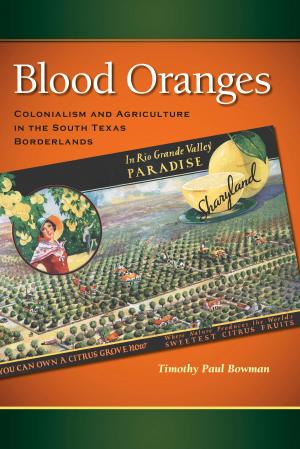Landscaping with Edible Plants in Texas
Design and Cultivation
Nonfiction, Home & Garden, Gardening, Regional, Science & Nature, Science, Biological Sciences, Horticulture, Art & Architecture, Architecture, Landscape| Author: | Cheryl Beesley | ISBN: | 9781623493233 |
| Publisher: | Texas A&M University Press | Publication: | October 16, 2015 |
| Imprint: | Texas A&M University Press | Language: | English |
| Author: | Cheryl Beesley |
| ISBN: | 9781623493233 |
| Publisher: | Texas A&M University Press |
| Publication: | October 16, 2015 |
| Imprint: | Texas A&M University Press |
| Language: | English |
In this complete reference to integrating edible plants into a wide range of private and public landscapes, landscape designer Cheryl Beesley thoroughly answers the questions of how to plant, where to plant, and what to plant.
She covers garden layout, bed construction, and fencing options and offers specific design examples for a wide variety of possibilities for edible landscapes, such as a schoolyard, restaurant, or residence. She presents an extensive pallet of edible plant choices for Texas arranged by trees, shrubs, perennials, and annuals and includes detailed information about plant families as well as individual plants. Appendixes instruct readers on disease and insect control, additional variety selections, and plant and seed sources.
As the author points out, however they are incorporated, vegetables and fruits—long relegated to their own plots and often hidden from view—can become beautiful and practical additions to the ornamental landscape.
In this complete reference to integrating edible plants into a wide range of private and public landscapes, landscape designer Cheryl Beesley thoroughly answers the questions of how to plant, where to plant, and what to plant.
She covers garden layout, bed construction, and fencing options and offers specific design examples for a wide variety of possibilities for edible landscapes, such as a schoolyard, restaurant, or residence. She presents an extensive pallet of edible plant choices for Texas arranged by trees, shrubs, perennials, and annuals and includes detailed information about plant families as well as individual plants. Appendixes instruct readers on disease and insect control, additional variety selections, and plant and seed sources.
As the author points out, however they are incorporated, vegetables and fruits—long relegated to their own plots and often hidden from view—can become beautiful and practical additions to the ornamental landscape.















